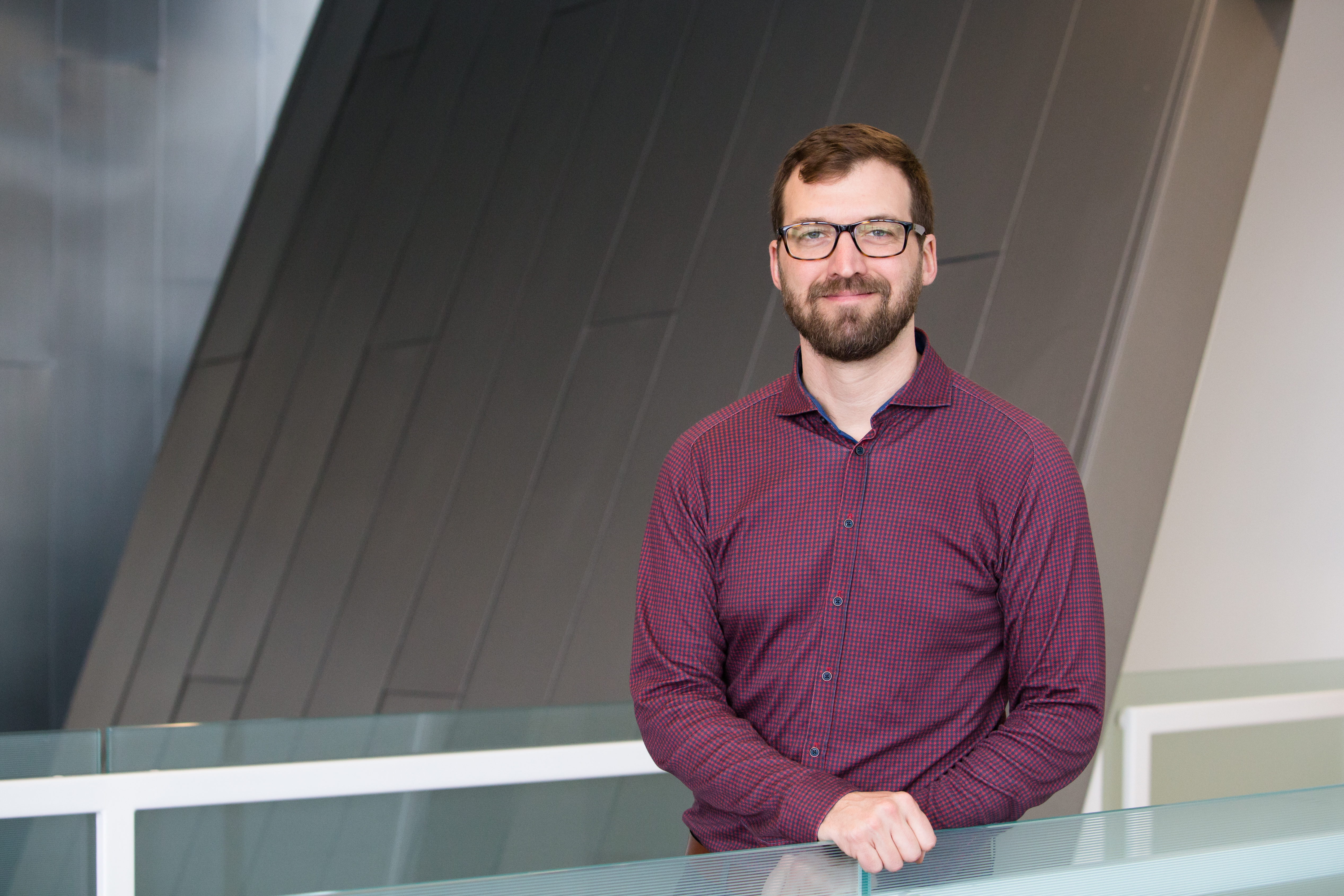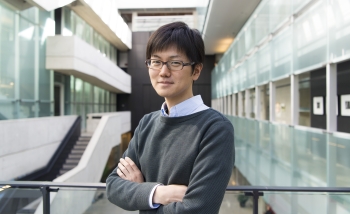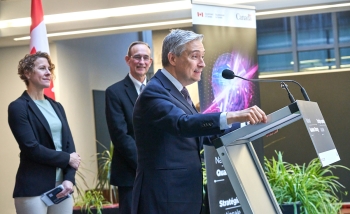Roger Melko awarded Canada Research Chair
Melko’s research explores the intersections between quantum information and condensed matter, an emerging area that is the subject of intense study at Perimeter. A pioneer in condensed matter physics, quantum information, and a winner of the IUPAP Young Scientist Prize in Computational Physics, Melko has been acknowledged as a vital contributor to science in Canada.
The CRC program was launched by the Canadian government in 2000 to attract and retain some of the world’s most accomplished and promising minds.
"It's an honour to have my research recognized by the CRC program,” said Melko. “I believe that the next decade will see a revolution in the way we understand quantum mechanics: its role in the physical theory of the universe and its application to emerging real-world technologies. I also believe that this revolution will be largely ushered in by a new generation of physicists – perhaps those entering graduate studies now – who are adept in traditional theoretical physics, but also skilled in computer programming and algorithm design."
Quantum information research examines how information can be understood and processed using the laws of quantum mechanics. Condensed matter tries to understand how the behaviour of the particles that make up a piece of material (and the interactions between those particles) determine its properties. It tackles a variety of fundamental questions, including the nature of magnets, the phases of matter (and what makes them distinct), and the exotic forms of quantum matter best suited for building quantum computers.
While “chalkboard physics” using hand computation is still part of Melko’s work, he uses high-powered computer simulations to investigate how quantum mechanical phenomena, such as entanglement, determine a material's properties.
“The analogy is the three-body problem from classical physics,” explains Melko. “You can solve the ‘Sun-and-the-Earth’ system yourself on paper, but if you throw the moon in there the equations don’t close and you have to use a computer if you want any predictive power for where those bodies are going to be in the system. Now, think about a system of interacting quantum matter, with not only trillions of bodies interacting together but much more complicated equations at work. In my opinion, the future lies in solving these problems with high-performance computing clusters; this is why the computer is my tool.”
Melko says the acknowledgement and support from the Canada Research Chairs program will enable him to push his research in bold new directions and pursue important breakthroughs.
"The CRC program will not only accelerate my line of research into the complex world of quantum many-body physics, but contribute to the training of this new generation of multidisciplinary computational physicists."
In addition to his associate faculty position at Perimeter, Melko is an associate professor at the University of Waterloo and an affiliate with the Institute for Quantum Computing.
Further exploration
About PI
Perimeter Institute is the world’s largest research hub devoted to theoretical physics. The independent Institute was founded in 1999 to foster breakthroughs in the fundamental understanding of our universe, from the smallest particles to the entire cosmos. Research at Perimeter is motivated by the understanding that fundamental science advances human knowledge and catalyzes innovation, and that today’s theoretical physics is tomorrow’s technology. Located in the Region of Waterloo, the not-for-profit Institute is a unique public-private endeavour, including the Governments of Ontario and Canada, that enables cutting-edge research, trains the next generation of scientific pioneers, and shares the power of physics through award-winning educational outreach and public engagement.





